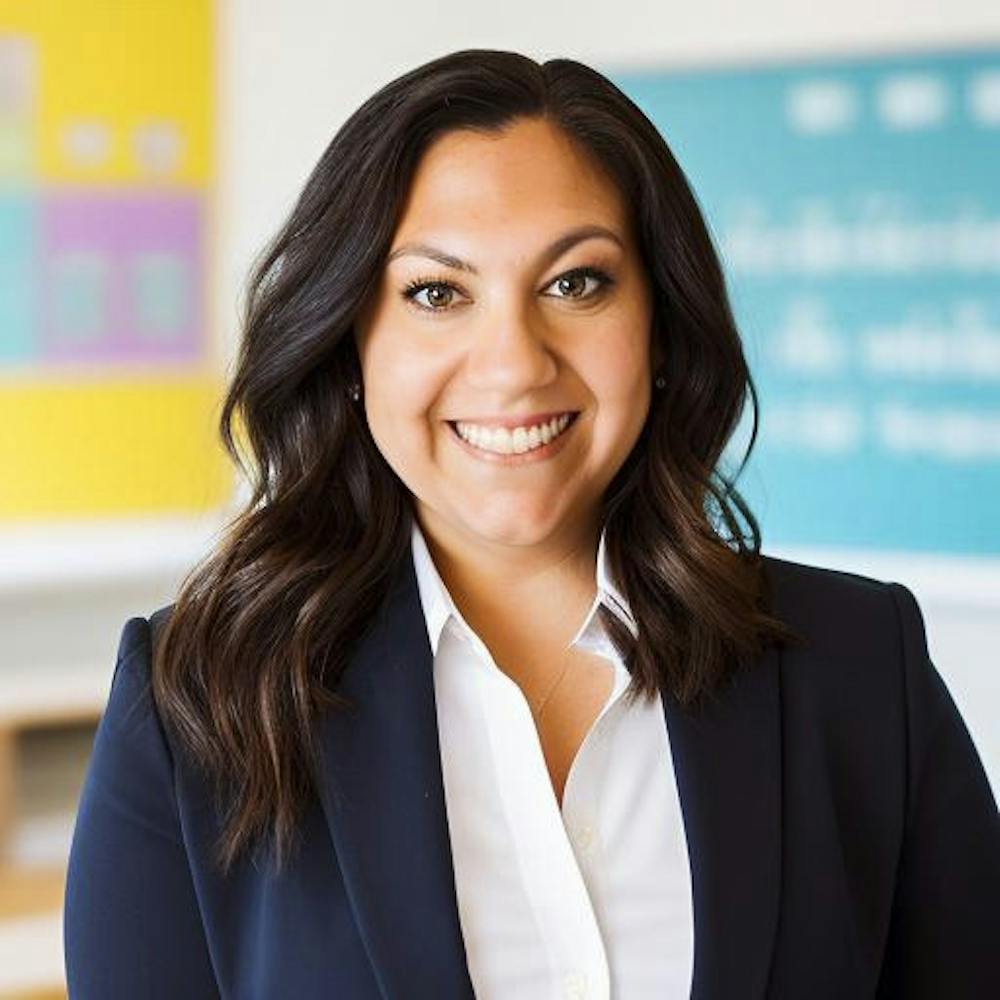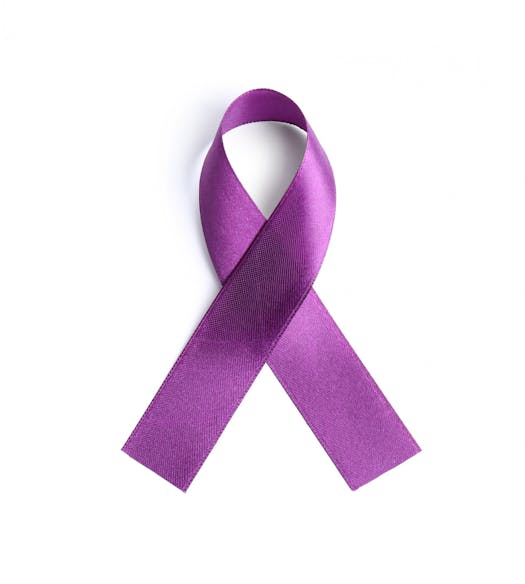How R.I.S.E. supports survivors of domestic abuse, sexual assault
'We rise by lifting others'

As a child, Marcella Lloyd survived living in a household with domestic violence.
“My father was a heavy alcoholic and I always felt like I didn’t have a voice,” Lloyd said. “Everybody has their own stuff. We all go through different trials and tribulations throughout life, and it’s how you handle those trials and tribulations that matters. I feel that what I went through provided me a chance to fight back and help other people who also feel like they don’t have a voice.”
Now, Lloyd is fighting back as the executive director of R.I.S.E. Advocacy, a nonprofit that helps survivors of domestic violence and sexual assault. Because of her own experiences, Lloyd said she is passionate about her work, especially when working with children.
“I understand it more personally and in-depth from a child’s perspective,” Lloyd said. “You literally have no control over anything that happens. I’ve always had a passion to take what I’ve gone through in life to help somebody else and to show them they do have a voice and that things can change.
“There are good, healthy relationships out there. You don’t have to continue the cycle.”
R.I.S.E. works within Isabella, Clare and Gratiot counties and helps people of all demographics. The organization provides free counseling, advocacy, legal help and shelter for its clients. The R.I.S.E. acronym stands for respect, independence, safety and empowerment, Magdalena Lopez, the sexual assault response team coordinator for R.I.S.E., said.
“These are the spaces where we have conversations about family dynamics, about sexual assault, about stalking,” Lopez said. “There’s no judgment. There’s no repercussions for telling us that someone was incredibly violent to you. We’re not going to turn around and call the police. This is the space to have that conversation so that they can debrief and figure out what it is they need for themselves, and then we can help them get to that.”
One of the most important parts of how R.I.S.E. works is called the empowerment model, Lopez said. Under the model, R.I.S.E. staff will almost never force any decisions on their clients, including calling emergency services. Lopez said the only exception to this is if the client is an immediate threat to their own safety or someone else’s.
In cases as extreme as suicidal thoughts, Lopez said R.I.S.E. staff’s first reaction is not to hospitalize the person. First, they will assess the person’s situation, asking questions like: “Do you have the means to commit suicide?” “Do you have a plan?” “Do you have a time frame?” There is a difference between being actively suicidal and “suicidal ideation,” Lopez said.
“If someone is actively suicidal – we’ve gone through the assessment, we can’t do a safety contract with them because it’s not safe – then we will call an ambulance or go to the hospital with them and assist them with checking in,” Lopez said. “I’ve accompanied people to the hospital because they had thoughts of self harm.”
Giving clients more control over their care is part of being trauma-informed, Lopez said. When R.I.S.E. gets in contact with new clients, one of their first priorities is to make a “safety plan” to help protect them from further harm, she said. This is especially important if the client needs to leave a harmful situation at home.
“While we’re working on getting you connected with a housing specialist, or the legal advocate, or our counselor, in the meantime, what can we do to put a safety plan in place?” Lopez said. “Is it checking in every couple of days, or if things escalate, do you have a person that you can call? Is it preparing to leave? Is it making sure you have birth certificates, Social Security cards packed in a bag and then hiding that bag in your car or at a friend’s house?
"It varies from each situation and we’re not going to just hang up on someone and say ‘Sorry, I can’t help you.’”
R.I.S.E. has a 24/7 crisis phone line at (844) 349-6177. The number can be used to ask about any of the organization’s services, including its shelter.
There are 11 beds in the shelter, and availability can change at any time, Lopez said. People stay anywhere between a weekend to months at a time, depending on their situation. Lopez said lethality is an important factor in prioritizing who to help first.
“Obviously, all domestic violence is bad,” Lopez said, “but if I get two calls at the same time and someone is discussing manipulative, controlling behavior and someone else is saying, ‘I was strangled,’ based on how the conversations might go, the one who has experienced strangulation would probably be the one admitted into shelter, and then we would try to accommodate the second person as well.”
An example of an alternative to the shelter could be staying at a friend’s house, Lopez said. R.I.S.E. can also contact other shelters in Michigan on clients’ behalves to help get them shelter.
"There are good, healthy relationships out there. You don't have to continue the cycle."
Marcela Lloyd, executive director of R.I.S.E. Advocacy
R.I.S.E. workers will often visit hospitals alongside clients for medical exams. Lloyd said this service is important because many healthcare workers are not taught how to help patients with trauma.
“With sexual assault and domestic violence, depending on the severity, you have vulnerable populations going through the healthcare sector,” Lloyd said. “What I’ve noticed – just personal experience and working in healthcare – not everybody’s taught how to handle those extreme, vulnerable situations and how to handle the psychological component outside of the medical component.”
Krysta Carabelli helps the community with a similar problem in law enforcement. She works for R.I.S.E. as a counselor, while also spending time in the Mount Pleasant Division of Public Safety as a social crisis advocate. Carabelli said her position is unique among other communities because she is able to work alongside police officers to help victims.
Carabelli said when police are responding to domestic violence or sexual assault calls, they are able to contact her if they think the victim needs psychological care.
“We would go and sit with somebody and do that crisis intervention,” Carabelli said. “Let them tell us about what’s been going on in their life, help them safety plan. What do we do if (the perpetrator) is in jail today, but bails out tomorrow? How do you start to take control of your life in terms of finance? Where am I going to live? If the perpetrator has everything in their name, what do I have left? What do I do?”
Carabelli said R.I.S.E.’s confidentiality policy extends to this part of her job: After the police refer survivors to her and they become R.I.S.E. clients, she does not automatically report anything the client says to the police.
“I’m not going to tell the police a dang thing about anything I’m doing at R.I.S.E. with any of my clients unless that client explicitly says it’s OK to do so,” Carabelli said.
Another R.I.S.E. service is legal assistance, formerly led by Rachel Eisenburg, who is now the program manager.
“The legal system can be really intimidating, especially when you’re coming from a place of trauma and just a whole background of abuse,” Eisenberg said. “A lot of times the court process is confusing and it can be very long … and when you have to face an abuser, potentially that could be even dangerous, overwhelming … triggering.”
Lloyd said funding for R.I.S.E. comes from community, state and federal grants and private donors.
“We need the help of the community to do what we do,” Lloyd said. “Grants alone do not cover all of our costs. A lot of times, those grants will cover our workers, but not anything on the administrative side. They do help a little bit as far as rent, utilities – that type of thing – but as I think everyone knows, there’s never enough money in nonprofits to go around. You get creative in how you utilize the funds that you have, and then how to utilize community partnerships in areas that you can’t fund.”
Lloyd said she wishes R.I.S.E. had more funding so it could do more for the community. Right now she said, R.I.S.E. has “definitely learned how to stretch a dollar.”
According to a recent annual report, R.I.S.E. received about $1.9 million in contributions from grants and community support between fiscal year 2021 and '22. The report said R.I.S.E. spent about $1.7 million of that funding on its services.
Another challenge for R.I.S.E staff is the emotional toll of advocating for survivors.
“I’ve heard stories of individuals who have been assaulted,” Lopez said, “and when you are given the opportunity by the survivor to be in the room with them while they’re going through this (sexual assault) exam, it’s one of the most humbling parts of my job that I take very seriously. It’s a moment where they’re literally in a room with a nurse, giving you the most graphic details of the grossest thing that someone could do to them.
“The most terrible thing that someone ... can do is take advantage of someone else, and when they’re sharing those details, it hits you. We have to feel the things, otherwise we’d be robots and we’d just be writing notes and sending people away.”
Eisenberg said legal advocacy takes a person who is patient, flexible and understanding.
“It can be tough,” she said. “You hear some sad things, you hear some difficult things. But

when you hear those success stories from clients ... it is very fulfilling, and you just feel that you were able to kind of help in those areas that they've been shut down and denied so many times that it’s just very rewarding.”






